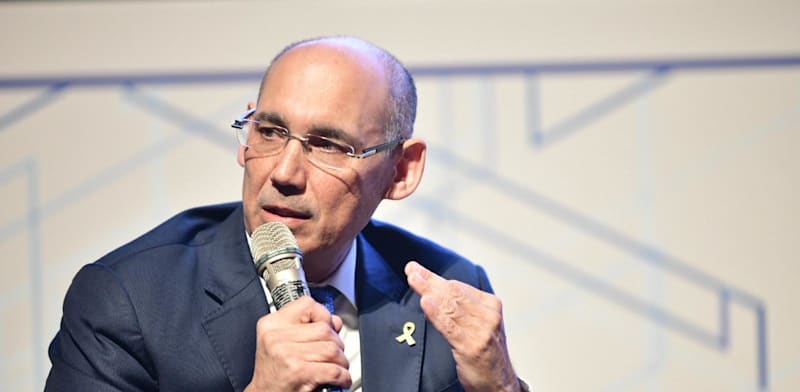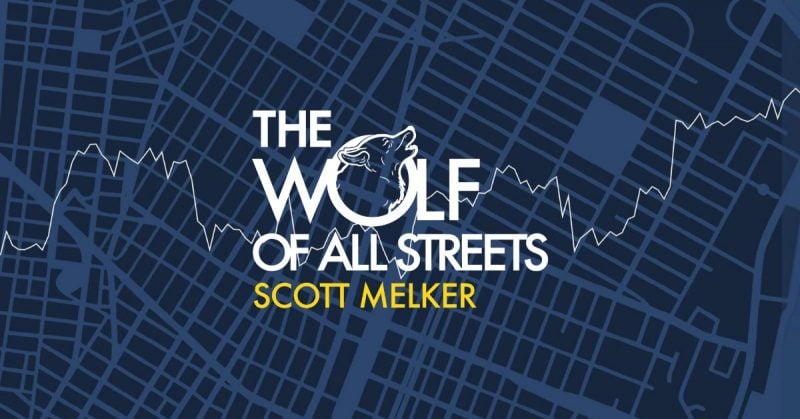A year ago, I recommended Robinhood (Nasdaq: HOOD) to members of my flagship research service, Strategic Fortunes.
One of the reasons I’ve been bullish on the company is that Robinhood CEO Vlad Tenev seems to be consistently ahead of the curve.
He built an app that turned millions of people into investors, then he added crypto and options trading and even prediction markets to its suite of next-generation financial tools.
And now he’s going after private investments.
According to recent reporting, Robinhood is preparing a closed-end fund that will let retail investors buy into some of the hottest private AI startups in the world.
This will give everyday investors access to the kind of companies that, until now, were reserved for venture capitalists and billionaires. The fund will hold stakes in five or more top-tier AI firms and may even use leverage to boost returns.
It’s a bold idea. But if you’ve followed Tenev’s track record, it’s not surprising.
Because what he’s really doing here isn’t just opening a new market. He’s laying the groundwork for something much bigger…
Internet capital markets.
Robinhood’s Tokenization Play
I’m on record that I believe tokenization is inevitable.
And for years, I’ve been telling anyone who will listen why I believe it will be the next great revolution in finance.
Here’s why.
Between 2010 and 2020, the S&P 500 gained about 270% when you include dividends. That means you could have roughly made 3X your money by investing in a fund that tracks this index.
But the top venture funds earned returns of up to 8X their investors’ money over that same period.
The catch is, unless you were a fund insider or accredited investor, you were locked out of the biggest gains. Because by the time the most promising companies finally went public, their early-stage profits were already gone.
Just look at the last IPO cycle.
DoorDash debuted in 2020, trading at $182 . Within two years, it had fallen more than 70% from its high.

Source: Yahoo Finance
Airbnb started trading at $146 on its IPO date, and after a brief climb the stock dropped to $85 before stabilizing.

Source: Yahoo Finance
These were considered “growth” companies. But all their growth was already captured privately.
That’s the problem Robinhood is trying to solve by democratizing access to private markets.
Global funding for private-AI startups topped $70 billion in 2024, and valuations keep climbing.
The Financial Times reports that ten of the sector’s top names added nearly $1 trillion in private value last year alone.
And there’s an obvious reason for this surge. Sovereign wealth funds, corporate venture arms and pension managers are all pouring capital into AI infrastructure as governments race to secure digital supply chains.
That’s why the median valuation for late-stage AI firms jumped 40% year-over-year.
In a strategic evolution of Robinhood’s business, Robinhood’s 23 million users will now have a potential on-ramp into that booming market.
As I mentioned last week, trading volumes have cooled since the pandemic boom.
Robinhood needs to keep users engaged. Giving them access to early-stage innovation is a smart way to do it.
But I believe there’s an even bigger motive for this launch.
When Tenev says he wants to give “normal people exposure to the rapid growth of private AI companies,” he’s talking about the next phase of internet capital markets.
I’m talking about a global system where anyone can fund innovation without banks, borders or gatekeepers.
In other words, Tenev is setting up the rails for a tokenized financial system where ownership in startups, funds or even data centers can be traded digitally just like crypto is today.
Of course, this experiment comes with some risk.
Robinhood’s new fund will be closed-end, meaning investors can’t easily cash out of it. It also might be leveraged, which would amplify both gains and losses.
And this represents a major change for Robinhood’s current user base, which is used to instant trades. As one Morningstar analyst warned: “Managing a complex private-equity-style strategy could seriously burn their fast-moving user base.”
But it’s not like this is a completely new idea.
In 2023, SoFi launched a private-markets fund that offered exposure to SpaceX and OpenAI. It drew huge interest, but also complaints about transparency and redemption delays.
Robinhood will need to learn from that playbook if this launch is to be a success.
Here’s My Take
Robinhood’s new AI fund is part of the same movement we just talked about with Coinbase.
Both companies are building the early pieces of what I call internet capital markets — a global system where anyone can fund innovation directly, without banks or borders standing in the way.
Coinbase is creating a regulated on-ramp for developers to raise capital from users through blockchain-based sales. And Robinhood is opening up a way for everyday investors to buy into private companies that were once off-limits to them.
But the endgame is the same: a global marketplace built on the same digital rails that move information today.
And it’s not just me or Vlad Tenev saying this. BlackRock’s Larry Fink calls tokenization “the future of markets.”
And this future is coming fast. Analysts project the market for tokenized assets to reach $6 trillion by 2030.

That’s a twenty-fold jump from today’s levels.
If Robinhood’s model works, millions of investors could one day own early stakes in companies like OpenAI before they ever hit a public exchange.
That’s the future of capital formation.
And it’s being built today one platform at a time.
Regards,
 Ian KingChief Strategist, Banyan Hill Publishing
Ian KingChief Strategist, Banyan Hill Publishing
Editor’s Note: We’d love to hear from you!
If you want to share your thoughts or suggestions about the Daily Disruptor, or if there are any specific topics you’d like us to cover, just send an email to [email protected].
Don’t worry, we won’t reveal your full name in the event we publish a response. So feel free to comment away!

























